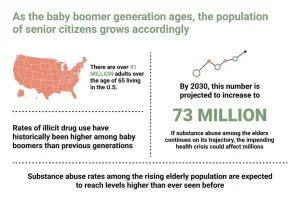
Alcohol addiction can negatively affect a person’s physical, mental, and emotional health. These effects can be long-reaching and can have serious and sometimes fatal consequences. You can learn more about the dangers of alcoholism in this resource from the Centers for Disease Control and Prevention (CDC). Avoiding temptations might sound simple enough in theory, but it can be difficult to eliminate everything that drives you to drink. This is another reason why professional treatment is so helpful. In these programs, you’ll learn ways to navigate the real world without isolating yourself, seeking healthy relationships that build you up and won’t undermine your progress.


The structure is also rigid, with steps generally done in a specific order. For one, if you’re undergoing medication-assisted treatment for opioid use disorder, NA may not be the best option. But that doesn’t mean it’s always going to work, or that other options aren’t viable. But a 2020 review of research on recovery options sheds some light on AA’s effectiveness.
As you seek recovery, it’s important to understand why you’re taking these steps to avoid alcohol. For many, learning about the dangers of alcohol addiction can be a powerful motivator to keep going. While its effectiveness and success is well documented, it is also clear that it does not work for everyone. A 2002 study with 279 people compared AA or similar 12-step programs with other forms of psychosocial treatment.
Because support is a necessity during recovery, finding a support group where you feel welcome and encouraged is vital. When choosing between support groups, it is important that whichever you pick follows the key pillars of addiction treatment. Those with tips to stay sober AUD suffer from the inability to stop or control alcohol use despite adverse social, occupational, or health consequences. Therefore, once an individual is diagnosed, it is crucial to manage this disease for the remainder of their life.
More and more, however, my friends will tell me in confidence what a relief it is not to party like we used to. By quitting first, it was as though I set the stage for people in my life to also reflect on their relationship with alcohol. Many find their mental health affected the most due to alcohol. The term “hangxiety,” the feeling of extreme anxiety due to a night of over-drinking, has even risen in popularity as more people begin to connect their rise in anxious feelings to alcohol.

One of the tenets of recovery is finding activities you can engage in that don’t involve drinking. When your mind and body are engaged in these projects, staying away from alcohol becomes easier to do. However, the idea behind the Addicted-Self Model is that alcoholism, like many other diseases, is a physical ailment—one that there is no cure for, only treatments that can help alleviate the symptoms.